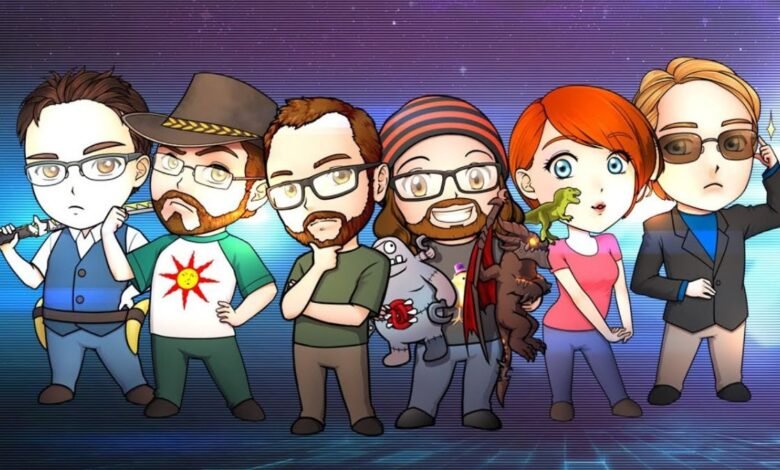How to Build a Successful Gaming Community

Creating a successful gaming community is more than just assembling a group of players; it involves fostering a culture of collaboration, respect, and engagement that resonates with members long-term. In this article, we will explore the essential components of building a thriving gaming community, from understanding your audience to implementing effective communication strategies and organizing engaging events.
Understanding Your Audience
To build a successful gaming community, the first step is to understand who your audience is. This means identifying the types of games they enjoy, their preferred platforms, and their gaming habits. Conducting surveys or polls can provide valuable insights into your community’s preferences. Understanding your audience goes beyond just knowing their gaming choices; it also involves recognizing their motivations for joining a community. Are they looking for competition, camaraderie, or casual play? Tailoring your community’s focus to meet these needs can significantly enhance member satisfaction and retention.
Demographics play a crucial role in shaping your community’s culture. Different age groups often have varying expectations and communication styles. For example, younger gamers might prefer fast-paced interactions on social media, while older players might appreciate more structured forums or Discord channels. Recognizing these differences can help in crafting a welcoming environment that respects the diversity of your audience.
Creating a Welcoming Environment
A welcoming environment is fundamental to the success of any gaming community. This means establishing clear guidelines that promote respect and inclusivity among members. Ensure that your community is free from harassment, discrimination, and toxicity. Create a code of conduct that outlines acceptable behavior and consequences for violations. Enforce these rules consistently to foster a safe space where all members feel valued and heard.
In addition to rules, fostering a sense of belonging is crucial. Encourage new members to introduce themselves, share their gaming experiences, and engage with existing members. Initiatives such as “new member nights” or “introduction threads” can help break the ice and facilitate connections. Highlighting community achievements or member spotlights can also create a sense of ownership and pride among members, reinforcing their commitment to the community.
Utilizing Effective Communication Platforms
Choosing the right communication platforms is key to facilitating interaction within your gaming community. Depending on your audience, you might opt for platforms like Discord, Reddit, or dedicated gaming forums. Discord has gained immense popularity for gaming communities due to its real-time chat capabilities and voice channels, allowing for seamless communication during gameplay.
When establishing communication channels, it’s essential to create organized spaces that cater to various interests. For instance, having dedicated channels for specific games, strategies, or even off-topic discussions can help members find their niche within the community. Make sure to moderate these spaces effectively, promoting healthy discussions and addressing any conflicts that arise.
Incorporating multimedia elements such as voice chat, video streaming, and live events can enhance engagement. For example, hosting regular game nights, tournaments, or livestreams can encourage members to interact more dynamically, building camaraderie and friendships that extend beyond the digital realm.
Building Engagement Through Events
Engagement is the lifeblood of a successful gaming community. One of the most effective ways to foster engagement is through events. Whether they are casual game nights, tournaments, or community challenges, events provide opportunities for members to interact, compete, and collaborate. Plan a diverse array of events that cater to different gaming interests and skill levels to encourage participation from all members.
Tournaments can be particularly effective in building excitement and camaraderie. They provide a platform for friendly competition and can often draw in new members who are interested in showcasing their skills. To ensure inclusivity, consider hosting events with varying skill levels or different game modes. Recognize participants through awards or shout-outs to further motivate members and highlight their contributions.
In addition to competitive events, consider hosting collaborative challenges that require teamwork. These challenges could involve completing specific in-game objectives or creating content that showcases the community’s creativity. Events like these not only strengthen bonds among members but also promote a sense of shared purpose and accomplishment.
Encouraging User-Generated Content
User-generated content (UGC) is a powerful tool for building a successful gaming community. Encouraging members to create and share their content—be it fan art, gameplay videos, or written guides—can foster a sense of ownership and investment in the community. Highlighting and promoting this content on your community’s main channels can motivate others to participate and share their creations, enriching the overall experience.
Establishing content creation contests or challenges can also spur creativity within the community. For example, organizing a monthly art contest or a video editing competition allows members to showcase their talents while reinforcing community bonds. Make sure to celebrate the contributions of creators, as recognition can greatly enhance member satisfaction and encourage further participation.
Implementing Feedback Loops
A successful gaming community thrives on continuous improvement and adaptability. Implementing feedback loops allows you to gather insights from your members and make necessary adjustments. Create avenues for feedback through surveys, suggestion threads, or open discussions where members can voice their opinions on community activities, rules, or events.
Be transparent about the changes you make based on feedback. When members see that their voices are heard and valued, they are more likely to remain engaged and committed to the community. Regularly check in with your members to ensure that their needs are being met, and be open to evolving your community as gaming trends change.
Collaboration with Other Communities
Collaborating with other gaming communities can be a great way to expand your reach and provide fresh experiences for your members. Partnering with similar communities for joint events, tournaments, or giveaways can introduce your members to new gaming experiences and attract new members to your community.
Choose collaboration partners that align with your community’s values and interests to ensure a cohesive experience. For example, if your community focuses on indie games, consider partnering with other indie game communities for special events or discussions. Such collaborations can enhance the diversity of experiences available to your members while fostering a sense of unity among different gaming groups.
Maintaining Momentum and Growth
Building a successful gaming community is an ongoing process that requires attention and effort. As your community grows, it’s important to maintain momentum by continuously introducing fresh content, events, and initiatives. Regularly assess the interests and needs of your members to ensure that the community evolves alongside them.
Consider bringing in community leaders or moderators to help manage growth and foster engagement. Empowering dedicated members to take on leadership roles can lighten your workload and provide fresh perspectives on community management. These leaders can help mentor new members, organize events, and facilitate discussions, creating a more dynamic and interactive environment.
Conclusion
In conclusion, building a successful gaming community involves a multifaceted approach that prioritizes understanding your audience, fostering inclusivity, facilitating effective communication, and encouraging engagement through events and content creation. By implementing feedback loops and collaborating with other communities, you can ensure your gaming community remains vibrant and adaptive to the changing landscape of the gaming world. The journey may be challenging, but the rewards of creating a supportive and engaging environment for gamers are immeasurable. Remember, a thriving community not only enhances the gaming experience but also cultivates friendships and connections that can last a lifetime.



